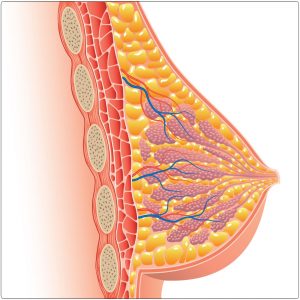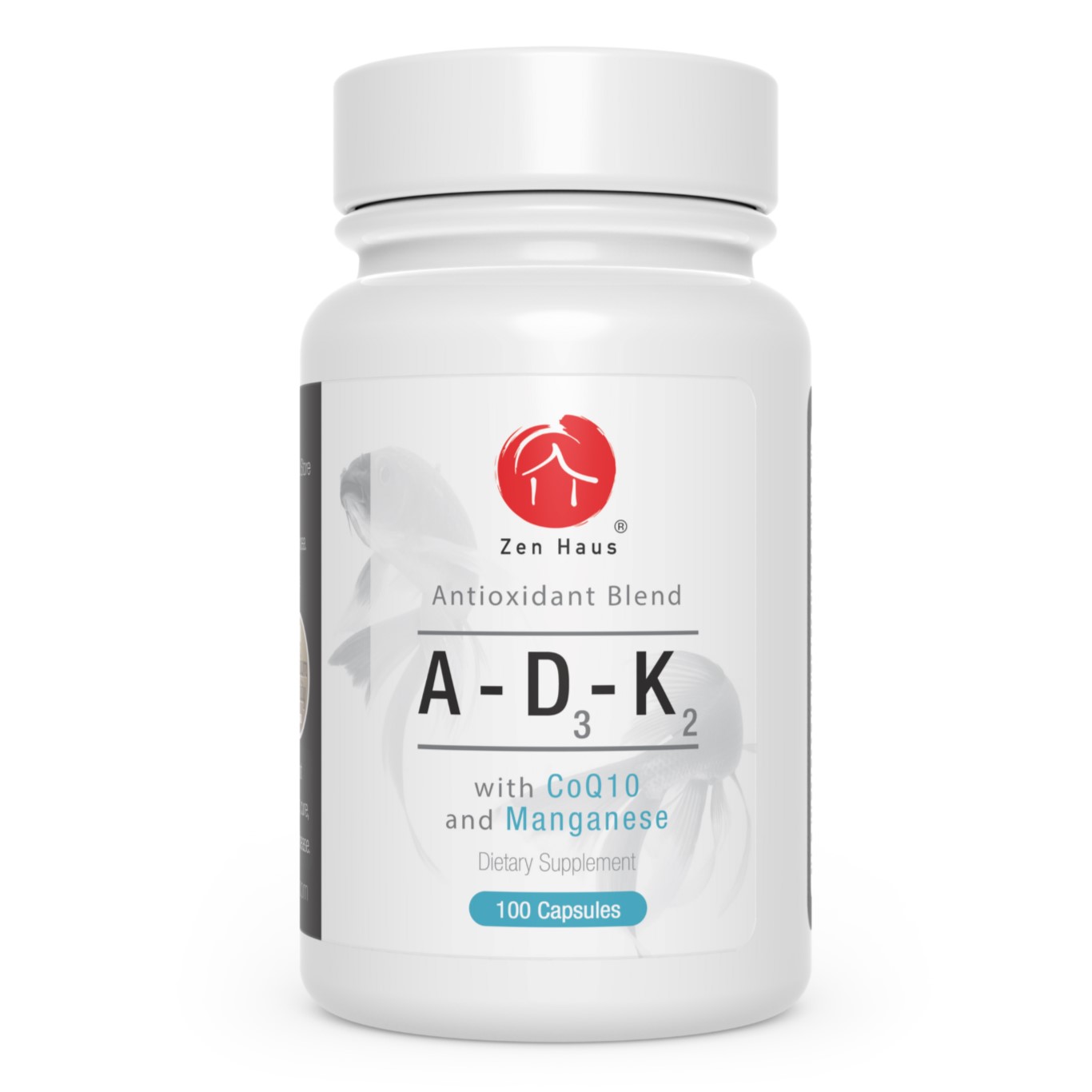Vitamin D
Part III
In Part II we looked at how Vitamin D benefits the central functions of our body. In this section we continue with the benefits of Vitamin D and its cancer fighting properties as suggested by on-going research.
Vitamin D and Specific Functions
There are also new areas of study that consider the role of Vitamin D. These areas include inflammation, nerves, muscle strength and testosterone.
Inflammation
Meta-analysis provides evidence that Vitamin D supplementation may reduce chronic low-grade inflammation in patients with type 2 diabetes. 28
Nerves
Research indicates that Vitamin D may help protect neural health by supporting immune function, nerve conduction, regulating calcium in the nerves and antioxidant defense.
A study published in the Journal of the American Medical Association and involving more than 7 million U.S. military personnel indicates that high circulating levels of Vitamin D were associated with improved nerve health. 29 A similar finding was reported in a study involving women from the Nurses’ Health Study who were supplementing with 400 IU or more per day. 30
Muscle Strength

Vitamin D plays a role in promoting muscle strength and integrity in men of all ages. Due to its direct impact on muscle cells, Vitamin D has demonstrated an ability to improve muscle remodeling as well as muscle strength and gain.
Improved muscle quality in elderly and fiber type morphology in young were observed. This indicates an effect of Vitamin D on skeletal muscle remodeling. 31
Another cross-sectional study involving 1015 adolescents aged 12 to 15 years suggests that Vitamin D has a role in muscle function in adolescent males. 32
Testosterone
Men deficient in Vitamin D may also experience increased testosterone levels after supplementation.
A higher level of D3 was associated with higher testosterone levels in Korean men. This relationship held after adjusting for season, body, age, composition, exercise, alcohol use, smoking, and chronic disease. 33
A publication titled “Vitamin D Correlation with Testosterone Concentration in US Army Special Operations Personnel” highlights a linear relationship with testosterone concentrations and Vitamin D deficiency.34 Vitamin D deficiency may limit testosterone synthesis and potentially limit human performance.
Vitamin D and Cancer Risk
There is growing evidence that Vitamin D could help protect against various types of cancer. Data suggests there may be a link between either supplementing with Vitamin D or having higher levels of Vitamin D serum levels and lower incidence of cancer in various parts of the body. W.B. Grant reported that at least 13 cancers were reduced by adequate exposure to solar UVB radiation.35 He also estimated that over 50,000 Americans die prematurely of cancer each year due to Vitamin D deficiency. We must keep in mind that the cause of cancer may not always be due to Vitamin D deficiency and there are a range of opinions on this subject. It may be that the cancer is limiting the body’s ability to produce and absorb Vitamin D. Nonetheless, having adequate amounts of Vitamin D is still crucial for the immune system to function properly.
Breast Cancer Prevention or Treatment

Vitamin D supplementation may help reduce the risk for breast cancer. Breast cells have receptors for Vitamin D. This raises the possibility that the nutrient could help regulate the division and proliferation of breast cells.
It has been shown that women who were taking at least 400 IU of Vitamin D per day were at 24 percent lower risk of developing breast cancer.36
Vitamin D deficiency had a negative effect on overall and disease-free survival in breast cancer cases, being related to tumor size, stage, grade, nodal status and HER2/neu receptor expression. The HER2/neu receptor has been shown to play an important role in the development and progression of certain aggressive types of breast cancer.37
Colon Cancer
Epidemiologists mapping the incidence of colon cancer in the 1970s observed a curious pattern. People in the South were half as likely to die of colon cancer than those in the Northeast. Perhaps this is related to sunshine and Vitamin D production.
A meta-analysis including 1822 colon and 868 rectal cancers reported an association of low Vitamin D levels and both cancers.38
Five studies of Vitamin D serum levels in association with colorectal cancer risk were identified using PubMed. A 50% lower risk of colorectal cancer was associated with a serum level greater than 33 ng/mL when compared to less than 12 ng/mL. The evidence to date suggests that daily intake of 1000-2000 IU per day could reduce the incidence of colorectal with minimal risk.39
Dr. Mazda Jenab of the International Agency for Research on Cancer in Lyon, France, reported that among 1248 people who developed colorectal cancer and an equal number who did not, those with the highest levels of Vitamin D in their blood had a nearly 40 percent reduced risk of developing colorectal cancer compared to those with the lowest levels.40
Pancreatic Cancer
A study led by researchers at Northwestern and Harvard universities indicates that consumption of Vitamin D tablets can cut the risk of pancreatic cancer by 40 percent.41 The study examined data from two large, long-term health surveys and found that taking 400 IU of Vitamin D per day reduced the risk of pancreatic cancer by 43 percent. Those who consumed less than 150 IU per day experienced a 22 percent reduced risk of cancer.
Prostate Cancer
A recent study done in December 2017 suggests that a Vitamin D receptor, Taq I polymorphism, might be a risk factor of prostate cancer risk, especially in Asians.42
Ovarian Cancer
A February 2018 study highlights the importance of Vitamin-D Binding-Protein in ovarian tumor progression and the potential application of this protein as a therapeutic target for epithelial ovarian cancer.43
Gastric Cancer
A February 2018 study concluded that ambient UV-B radiation is inversely associated with the development of oesophageal and gastric cancer, even in a high latitude country.44 Perhaps the ubiquitous Vitamin D hormone has a role to place here as well.
Thyroid Cancer
Another February 2018 study concludes that high levels of Vitamin D serum level were associated with decreased thyroid cancer risk.45
The list goes on but we will stop here. Vitamin D may have a key role to play in cancer prevention and treatment. The research metrics look especially promising for colon and pancreatic cancer. It certainly has an important role to play in the immune system. Do you want to learn more about Vitamin D and specific areas of health? Vitamin D is a useful resource for isolating Vitamin D as a treatment or its deficiency and observing how it is associated with various ailments.
Summary
In Part I we explained that Vitamin D is a fat-soluble nutrient that interacts with the vast majority of the body’s cells. Despite the sun being the major natural source of Vitamin D, experts agree that Vitamin D deficiency is common among Americans. The amount of sunlight exposure, quality of sunlight, sun blocking and filtering agents, biological ability to produce Vitamin D and body fat dilution all contribute to Vitamin D deficiency. Vitamin D3 is recommended over Vitamin D2 because Vitamin D3 is used more effectively in the body. 2,000 to 10,000 IU of Vitamin D per day is recommended to raise and maintain healthy serum levels.
In Part II we explored the relationship between Vitamin D and the immune system, cell function, cognitive function, mental health, cardiovascular health, bones, and longevity. These areas cover much of the our potential health concerns and continue to be heavily researched. In this section we looked at the link between Vitamin D and more specific health areas. These include include inflammation, nerves, muscle strength, testosterone and heart issues. We also considered Vitamin D and an effective means of treating and preventing various cancers. It was observed that Vitamin D may be of special interest when it comes to colorectal and pancreatic cancer.
With so much research and data for Vitamin D, we are introduced to a puzzle that may be too big for us to solve right now. It may even be counter-productive in terms of understanding Vitamin D’s ability to treat specific diseases. There are many variables and interactions that needs to be accounted for. The effects of a given disease or poor function system on the body will affect other systems as well. However, what is not lost is the holistic value of Vitamin D on our overall health.
Since many Americans are deficient in Vitamin D and there is little risk of Vitamin D toxicity, it makes perfect sense to supplement with it because it bolsters our bodies defenses and checks off many boxes when to comes to determining what may be the underlying cause of a disease.
Vitamin D contributes greatly to the proper functioning of our body. It helps protect us from foreign threats, and also from our own immune system. It makes us think and remember more clearly. It lets us age and feel better. With the recommended dose of 2000 – 5000 IU per day there is little risk. Adding Vitamin D, by way of our ADK Supplement, to the Zen Haus Nutritional Support System is an easy choice. We hope you will consider making Vitamin D your ally as you strive for longevity with continued mental and physical health.
Read our ADK Synergies post on the synergies and overlapping benefits of Vitamins A, D and K. This will give a better understanding of why we combined them and how they are more effective together.
.
.


